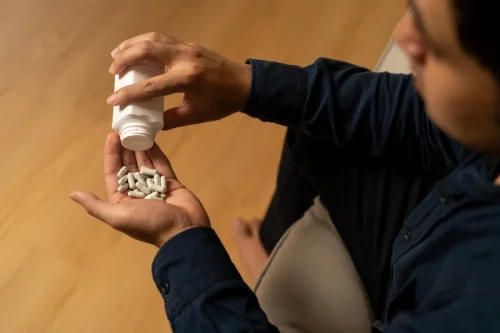
No amount of sentiment is worth your health, happiness, and especially your sobriety! It can also be a good idea to tell your boss about your recovery journey. However, we only suggest doing this if you feel safe and comfortable to do so.
To stay persistent, you have to decide to stop addictive behaviors and choose a rebuilding your life after addiction healthier lifestyle. If you feel like you are struggling during recovery, it is essential to ask for help. Finding a new hobby, such as art, music, journaling, or reading, may help you cope with cravings and the urge to use drugs or alcohol. Ongoing treatment may include attending a support group or going to an outpatient treatment for medication-assisted treatment (MAT), therapy, or other treatment services. It is common to encounter challenges and setbacks along the way, and it’s important to be prepared to navigate these obstacles with resilience and determination. Ensure you have the support you need by verifying your insurance coverage.

While relapse is a common concern in recovery, it’s essential to understand that it’s not an inevitable part of the journey. By building resilience and developing effective coping strategies, you can significantly reduce the risk of relapse and maintain your commitment to sobriety. Recovering from addiction is a remarkable achievement, but the journey doesn’t end there.
Recovery from addiction is a transformative journey that requires commitment, resilience, and a willingness to embrace a holistic approach to your well-being. By incorporating the strategies outlined in this guide, you’ll not only strengthen your recovery but also cultivate a fulfilling and sustainable lifestyle. While addiction recovery doesn’t always get easier, you can get better at dealing with it. Equipping yourself with the right tools and support system will make facing stress and triggers much more manageable.

Many people have jobs or go to school while living in the home. They may also buy and prepare their own meals, do laundry, and pay rent. Sober living homes often have a leader who sets and enforces rules.

Career counselors, job coaches, and support groups can provide guidance and resources for managing work and money. Many communities also have government or non-profit programs to help with this. There are aspects of addiction that people won’t understand unless they’ve been through it themselves or seen its effects on other people firsthand. Accountable – A supportive community holds you accountable for your actions. Once you’ve set specific, measurable goals, your support system can help encourage you during milestones and lift you up when you feel your lowest.
For example, if you began using drugs and alcohol as a teen, and now you’re in your late 20’s, the early ’30s, life has changed. You may only remember things back when you were sober and a functioning family member, but those roles and expectations in those relationships have also changed. Chance are, in the substance-abusing days, you did bad things or failed during that previous lifestyle. Even though these things happened during the addiction era, these actions had still caused people to become upset or have animosity. However, most loved ones will be happy to have you back healthy and sober and begin to realize the influence of old wounds can heal as time goes on.

It’s a blend of people with similar experiences as you and those who support your sobriety goals. These could be family, friends, coworkers, or fellow rehab graduates. Setting realistic goals provides direction and motivation during recovery. Starting with small, manageable steps and gradually working towards larger objectives helps you stay focused on achievable milestones and reminds you to celebrate your progress. If you or a loved one is living with addiction and ready to pursue recovery, we can help.
3 de abril de 2024
Publicado en: Sober living